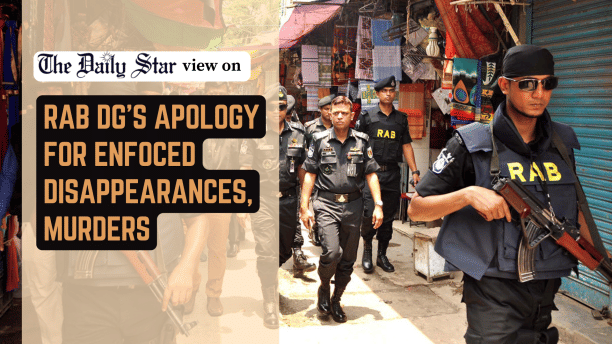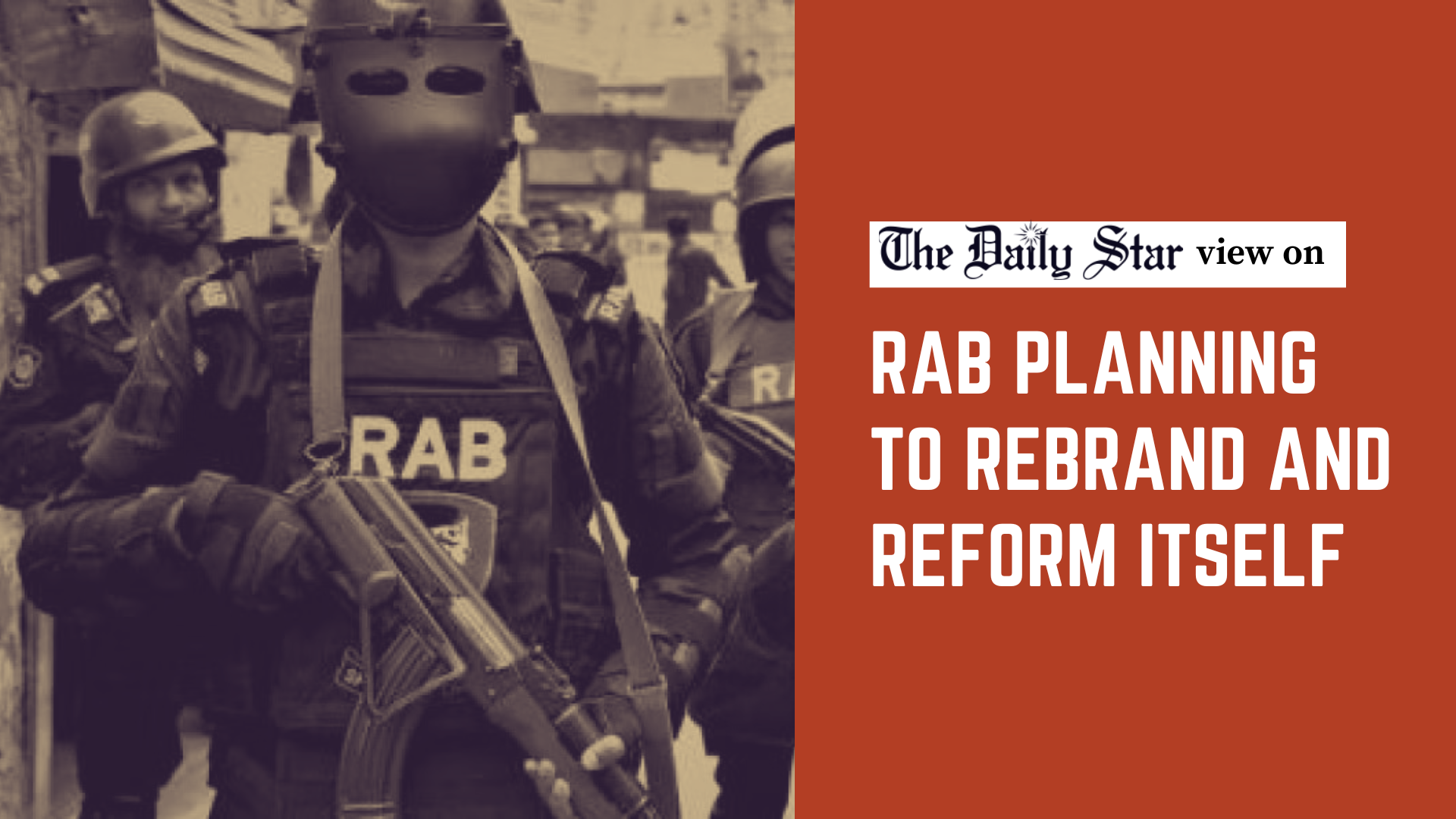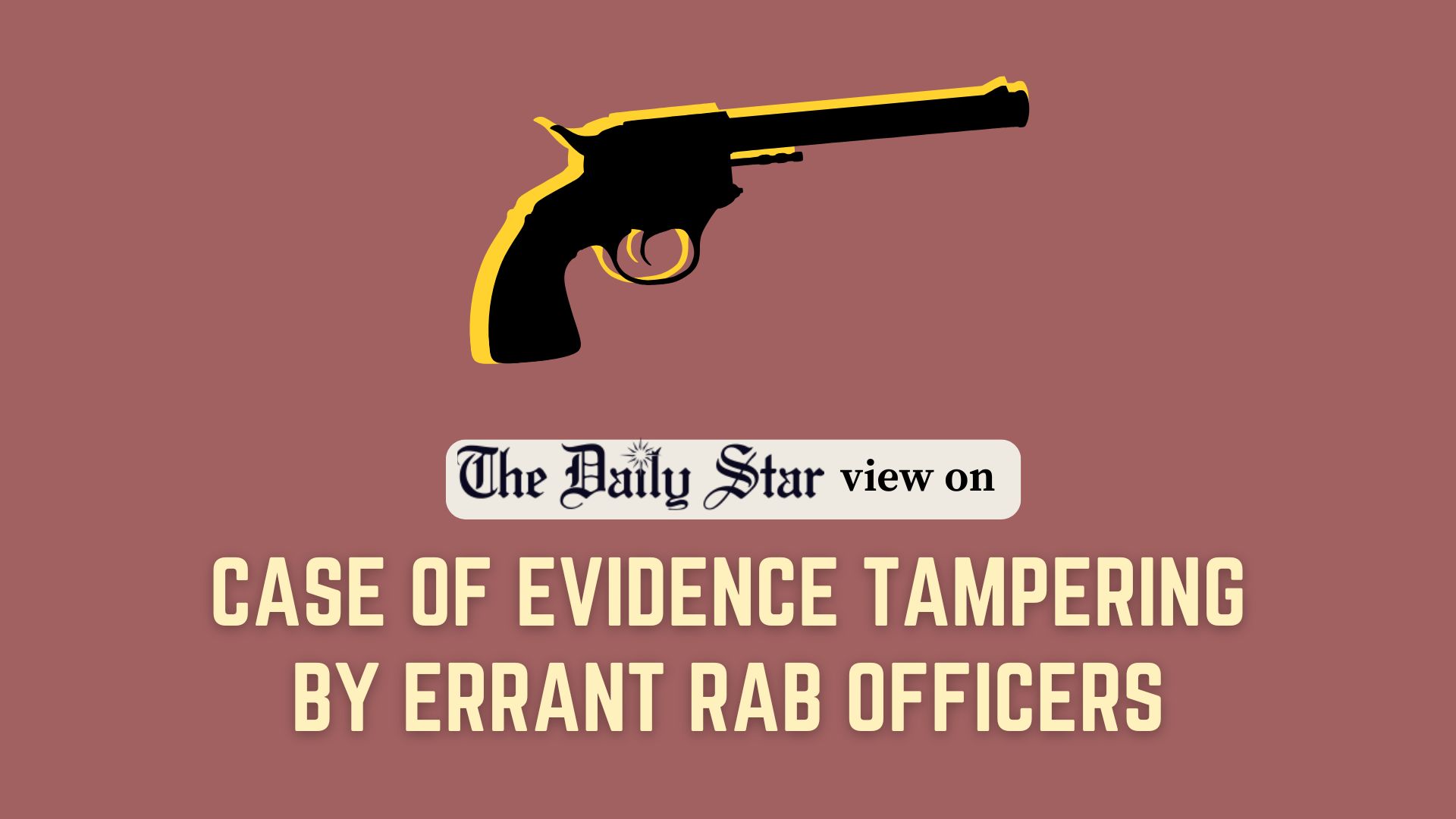A welcome admission from Rab DG

The Rapid Action Battalion (Rab), a specialised unit of Bangladesh Police, has finally admitted that much of the allegations against it—of enforced disappearances and murders in the guise of crossfires—are true. Historically, the force has constantly denied that it is involved in such activities. We welcome this rather surprising announcement, but acknowledgement is only the first step towards justice.
At a views exchange meeting on Thursday, the Rab director-general apologised to families who lost their loved ones to enforced disappearances and extrajudicial killings, acknowledging the existence of secret prisons. This comes 20 years after the formation of Rab, which was aimed at curbing organised crime and terrorism, but turned into a "government death squad," as per statements of many activists and critics. Over the period, the unit garnered a reputation associated with extrajudicial killings, enforced disappearances, and torture of opposition political figures and critics of the government. As per data compiled by Ain O Salish Kendra (ASK), at least 1,200 people were killed in the so-called crossfires involving Rab from the force's inception in April 2004 till June this year.
But now, the opportunity for redress has arisen. The inquiry commission on enforced disappearances, formed on August 27 this year, is investigating around 1,600 complaints, 172 linked to Rab, and the International Crimes Tribunal has initiated relevant proceedings. The US sanction of Rab drastically brought down extrajudicial killings. Therefore, what transformed the force into a weapon of suppression, as the data implies, is the complete lack of accountability. Fortunately, Rab itself is aware of this fact, and is accordingly drafting a new law to regulate its operations, while mulling to introduce a new name, logo and uniform. We hope such actions will bear fruit and not just be for optics.
The apology should be followed by genuine attempts at reform, and the DG's pledge to never partake in such crimes is hopeful. But much remains to be done. As Mayer Daak, a platform of the families of enforced disappearance victims, has made it clear, every person forcibly disappeared must be returned to their loved ones, and families have to be informed about incidents of disappearances and deaths. While many are advocating for the disbandment of this force, if it does remain, we demand a proper legal framework for Rab to operate, one that would take the rights of citizens, including freedom of expression, into consideration. Additionally, there has to be consequences for the unit's past crimes, for which an independent body to investigate the cases is paramount. And based on the findings of the investigations, those who have been involved in these crimes must be brought to justice. If genuine changes are achieved, we are optimistic that Rab will emerge as a pro-people force.



 For all latest news, follow The Daily Star's Google News channel.
For all latest news, follow The Daily Star's Google News channel. 

Comments